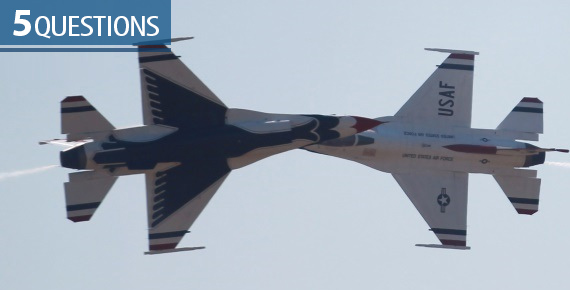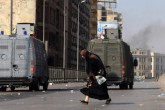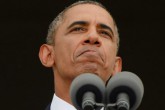1. What was the position of the United States of America on Syria before the chemical attack took place on August 21, 2013?
The U.S. has abstained from any intervention in Syrian crisis since the very beginning. Given the experience in Afghanistan and Iraq wars and the current economic situation, U.S. foreign policymakers tried to avoid future interventions in these kinds of crises. Furthermore, the murder of U.S. Ambassador to Libya as the Syrian crisis deepened confused Americans still further as to the possible political scenario in the post-intervention period in Syria. Incorrect historical comparisons by the U.S. press and think tanks significantly contributed to this situation. Furthermore, that the public opinion considers economy as the primary problem and the reluctance to embark on an “international adventure” served as a significant trump card for those supporting Washington’s inertia. As a result, U.S. preferred to consider inertia as the best action in the ongoing crisis for more than two years.
2. What did the August 21 attack change in the US perception of Syrian crisis?
On August 20, 2012, the US President Barack Obama declared that the use of chemical weapons is a “red line” set for Syria and stated that U.S. will change its attitude against Syria if this red line is crossed. Since then, the US has not changed its stance despite allegations and proofs that the regime has used chemical weapons. The U.S. has only taken some steps to arm some of the opposition groups. This resulted in the perception that even an authoritarian leader who is fighting against the majority of the Syrian people ignored this “red line” principle and that what U.S. is saying as a superpower has no validity at all in the world politics. Furthermore, the violation of a crucial international norm banning the use of mass destruction weapons could lead to the normalization of the use of these weapons in the long run. This would put the US security and its allies in danger. Finally, this time the Obama administration is cornered by the video images and photos of the victims that are everywhere contrary to the tissue and soil samples from the previous attacks, which were said to be presented to the U.S. Chemical weapon experts analyzing the images confirmed that the use of chemical weapons is undeniable while international public opinion called on Western countries – notably the U.S. – to take preventive measures to prevent the Assad regime from using chemical weapons once again.
3. How will the U.S. administration decide on a possible intervention in Syria? How will the decision-making mechanism work?
There is a disaccord over the resolution of the Syrian crisis in the President Obama’s cabinet. A few names, the U.S. Secretary of Defense Leon Panetta in particular, are known to support more active intervention in Syria during Obama’s first term. The disaccord still exists in the second cabinet formed in January. However, US National Security Adviser, Susan Rice and U.S. Ambassador to the United Nations, Samantha Power were, at the beginning, expected to support a more determined U.S. intervention in the resolution of Syrian crisis because they were considered as the leading supporters of U.S. active involvement in Libya operation. Obama, however, is believed to be more cautious about following the advices of these figures as the aforementioned Benghazi crisis is still a cause of trouble for the Obama administration (Benghazi crisis put Obama to trouble during presidential elections and it was considered as the primary reason for which Susan Rice was not appointed as the secretary of the state). Moreover, a number of U.S. intelligence agencies began to give anonymous statements that any strike that will be carried out before the UN weapon experts complete their research shall be “premature.” This indicates that some figures of the U.S. intelligence bureaucracy want to be completely su
In this article
- 5 Questions
- Foreign Policy
- Opinion
- 2012
- 2013
- Afghanistan
- Assad Regime
- Bashar Al Assad
- chemical attack
- Chemical Weapons
- Donald Trump
- Elections
- Intervention in Syria
- Iraq
- Libya
- Libyan Crisis
- Middle East
- Normalization
- Opposition
- Q&A
- Red Line
- SETA
- SETA 5 Questions
- Superpower
- Syria
- Syrian Civil War
- Syrian Conflict
- Syrian Crisis
- Syrian Regime
- United Nations (UN)
- United States (US)
- US Foreign Policy
- US President
- US Secretary of Defense
- USA
- Western Countries
- Western World



